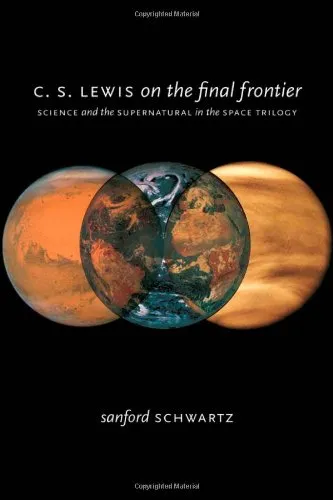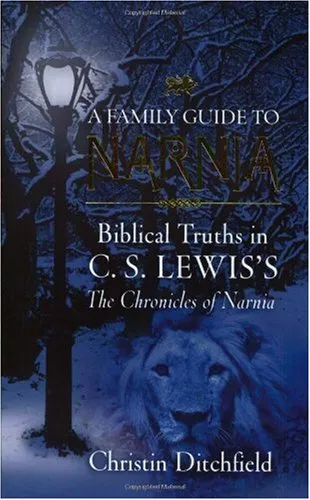C. S. Lewis on the Final Frontier: Science and the Supernatural in the Space Trilogy
4.5
Reviews from our users

You Can Ask your questions from this book's AI after Login
Each download or ask from book AI costs 2 points. To earn more free points, please visit the Points Guide Page and complete some valuable actions.Related Refrences:
Welcome to a comprehensive introduction to the realms of C. S. Lewis’s imaginative exploration of the interplay between science and the supernatural, encapsulated within his revered 'Space Trilogy'. Sanford Schwartz’s book, 'C. S. Lewis on the Final Frontier: Science and the Supernatural in the Space Trilogy', offers a profound scholarly examination of these themes, showcasing how Lewis artfully intertwines the scientific with the metaphysical.
Detailed Summary of the Book
The book delves into the intricacies of C. S. Lewis’s 'Space Trilogy', which comprises 'Out of the Silent Planet', 'Perelandra', and 'That Hideous Strength'. Schwartz situates Lewis’s work in the context of early 20th-century thought, elucidating how the trilogy both reflects and critiques prevailing scientific and philosophical attitudes. He meticulously explores the philosophical nuances and theological implications of Lewis’s portrayal of a cosmos where the supernatural operates side by side with scientific realities. By unpacking Lewis's narrative strategies and thematic concerns, Schwartz provides readers with a clearer understanding of Lewis’s vision of a moral universe.
Key Takeaways
- C. S. Lewis used his 'Space Trilogy' to critique materialistic and reductionist views emerging from modern science, advocating instead for a vision of reality rich with divine presence and purpose.
- The trilogy illustrates Lewis’s belief in a harmonious universe where science does not negate, but often reveals, deeper metaphysical truths.
- Schwartz emphasizes Lewis’s strategic use of allegory and metaphor to communicate complex theological concepts in a narrative form.
- The book stresses the relevance of Lewis’s ideas in contemporary debates on science and religion, arguing for their continued significance.
Famous Quotes from the Book
Sanford Schwartz quotes C. S. Lewis extensively throughout his analysis, strengthening his arguments with direct references to the trilogy. Here are some pivotal excerpts:
"Lewis saw the universe as a multifaceted tapestry where rationality and spirituality coexist, influencing one another to create a holistic understanding of existence."
"In the face of rising secularism, Lewis invites us to envision a reality not limited by the empirical but enriched by the transcendent."
Why This Book Matters
'C. S. Lewis on the Final Frontier' is not simply a commentary on Lewis's work but an essential guide to understanding the deeper philosophical and spiritual layers of the 'Space Trilogy'. Schwartz’s book matters because it bridges the gap between literary analysis and philosophical inquiry, offering insights into how literature can reflect and shape our understanding of profound truths. By re-examining Lewis’s narratives through a contemporary lens, Schwartz provides valuable perspectives that challenge readers to reconsider their own views on the relationship between science, faith, and meaning.
Through this book, Schwartz not only honors Lewis’s literary and intellectual legacy but also enriches the ongoing dialogue about the compatibility of scientific and spiritual worldviews. It is a vital resource for scholars, students, and general readers who seek a deeper appreciation of one of the 20th century’s most influential thinkers.
Free Direct Download
You Can Download this book after Login
Accessing books through legal platforms and public libraries not only supports the rights of authors and publishers but also contributes to the sustainability of reading culture. Before downloading, please take a moment to consider these options.
Find this book on other platforms:
WorldCat helps you find books in libraries worldwide.
See ratings, reviews, and discussions on Goodreads.
Find and buy rare or used books on AbeBooks.
1380
بازدید4.5
امتیاز50
نظر98%
رضایتReviews:
4.5
Based on 0 users review
"کیفیت چاپ عالی بود، خیلی راضیام"
Questions & Answers
Ask questions about this book or help others by answering
No questions yet. Be the first to ask!



